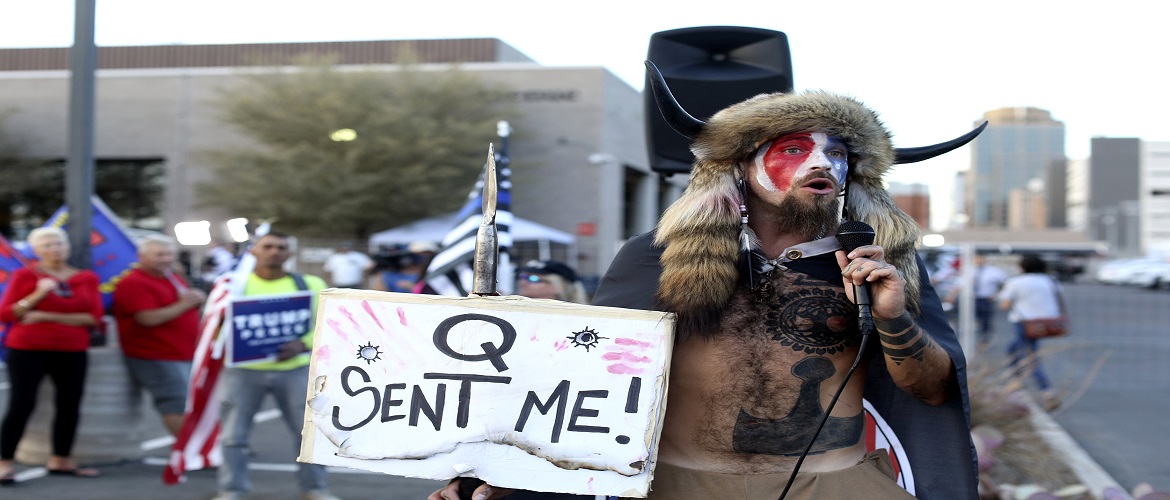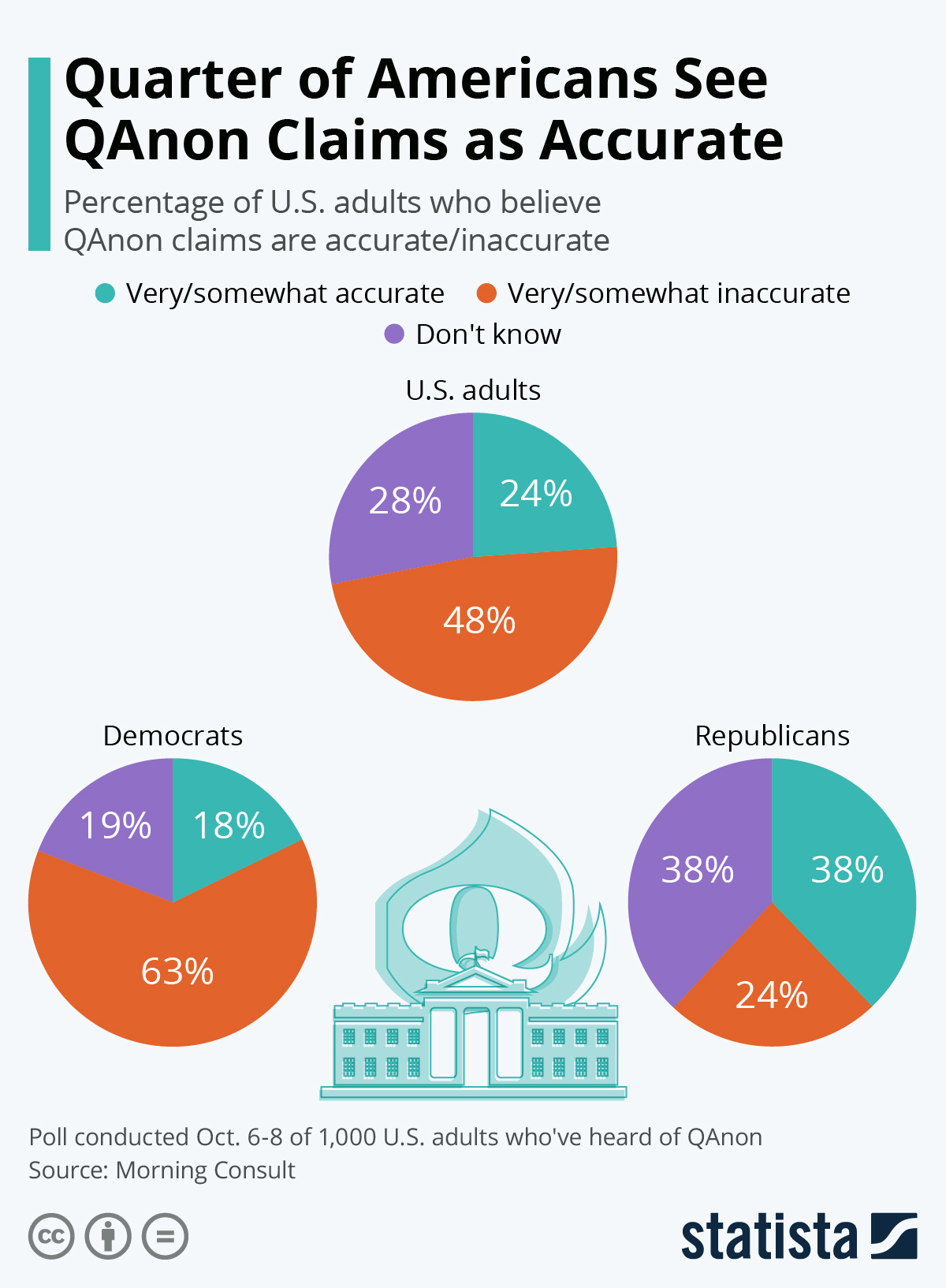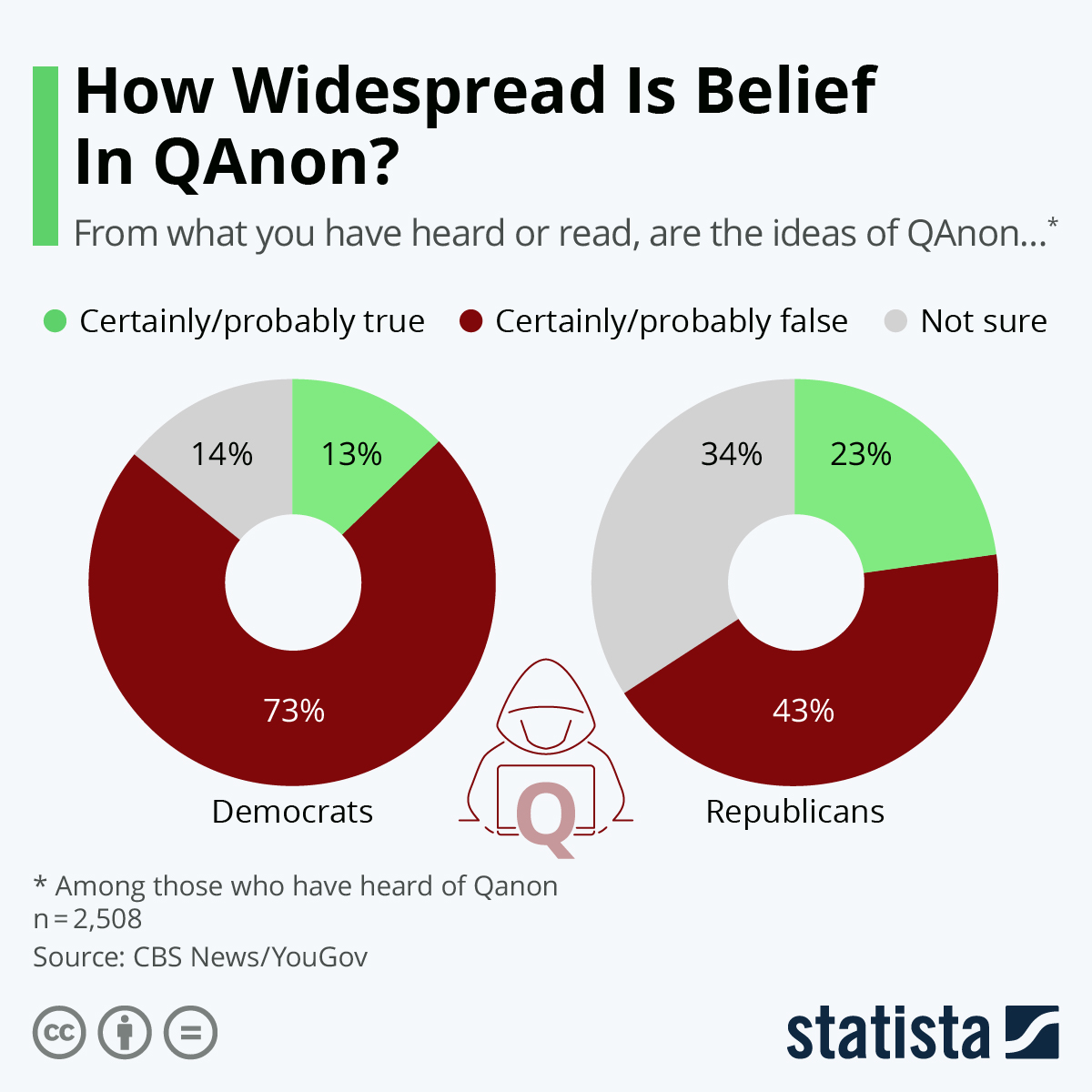A Web of Conspiracies
April 14, 2021 | Expert Insights

While the Republicans in the Senate staunchly defended former President Trump in the impeachment hearings, their colleagues in the House of Representatives were not so supportive of one of their own. Congresswoman Margorie Greene, one of President Trump's most vocal and high profile supporter, was expelled from her committees over remarks she made before being elected. Her statements had promoted QAnon conspiracy theories and endorsed violence against the Democrats.
In her defence on the floor of the House, Congresswoman Greene stated that she had "stopped believing" in QAnon — a conspiracy theory claiming that Trump was waging a holy war on child-abusers, heathens, and cannibals — sometime in 2018. This did not cut much ice as eleven Republicans joined the Democrats to pass the motion (230-199).
Apparently, the myriad conspiracy theories have split the Republican ranks and may potentially continue to haunt the GOP in times to come.
TRAPPED IN OWN WEB
There was a great deal of scrutiny by the media and liberal groups of Ms Greene's association with the QAnon theory on the basis of her social media utterances just before the vote. So convincing was the argument that it forced many Republicans to distance themselves from her, even though she mirrored President Trump’s own outlook - pro-white, confrontational, laced with conspiracy theories and tinged with racial overtones. Mr. Trump, himself on being queried about his relationship to QAnon and the Proud Boys, never did reject the groups.
House Minority Leader Kevin McCarthy had allegedly told members that he did not plan to remove Ms. Greene from her committees. However, a caucus in a secret ballot voted 145-61 to keep Liz Cheney, another Republican under heat due to her policies, in leadership. The choice was between stripping Ms. Cheney, who voted to impeach Mr. Trump the second time or to axe Ms. Greene from her committees. Clearly, the safer choice was made, yet not by a long shot.
The Greene controversy can be seen as a summation of the larger challenge that the Republicans face after Mr. Trump's departure. Post-riots at the Capitol, Republicans appear to have backed away from the rhetoric that challenges anything radical. However, by explaining away Ms. Greene’s previous remarks as mere an error of judgment, they demonstrate that politicians like her, who are in close touch with party activists and hard-line supporters, continue to be an integral part of their voting base.
HYDE TO DR. JEKYLL
At the crux of it, QAnon is a completely unfounded conspiracy theory. In October 2017, an anonymous user put up a series of posts on the message board 4chan. These messages came to be known as ‘Q drops’, often featuring pro-Trump themes. The supporters drive hashtags and coordinate abuse of ‘enemies’ — politicians, celebrities, and journalists, who allegedly cover up for paedophiles.
Although it originated in America, there is a considerable QAnon following in the United Kingdom, France, Germany, and Japan. The FBI, according to The Washington Post, also published a report calling QAnon a potential source of domestic terrorism, the first time for a fringe conspiracy theory. In fact, even Twitter was forced to take action by clamping down on accounts linked to QAnon after the assault on the Capitol because of the potential for "offline harm”.

The theory gained ground during Trump's tenure, as its proponents also grew deeply involved with his 'Stop the Steal' campaign. In one case study, researchers tracked claims that Sharpie pens were given to voters in Illinois and Arizona, which resulted in damaged ballots. It was found that these claims originated among Trump supporters on Twitter and were later amplified by members of his family and right-wing influencers, thereby bringing it into the mainstream.
While this might seem solely an internet phenomenon, it extended much beyond that during Trump’s presidency. A significant number of those who stormed the Capitol were QAnon supporters, the most prominent one being the self-proclaimed ‘QAnon Shaman’ (Jake Angeli), whose fur enclosed figure with horns went viral.
A Pew poll found that 41 per cent of Republican voters described the group positively and suggested that QAnon followers are a small, increasingly vocal minority. Yet, some argue that such polls don't capture their radicalisation and their ability to swing opinions.

Supporters of this theory, and therefore significantly supporting the Conservative government, root for politics based on the troubles of white identity. It comes from the idea that conservative voices, no matter what kind, are being silenced and that institutions no longer work for "true" Americans. While the GOP members don’t agree with some of Mr. Trump’s theories, they have continued to defend him, as can be seen even in his second impeachment, where only 10 of the 211 Republicans voted to impeach him.
The pattern now for the GOP seems to be the same as it was under Mr. Trump: one can criticise the former president's actions but not disavow him, thereby keeping the enthusiastic voter base happy. It's the best example of having your cake and eating it too.
Assessment
- Mainstream Media like Fox News had a role to play in the hype and coverage of the conspiracy theory as well. While dialling up the rhetoric increases clicks and revenue, readers and viewers see their opinions affirmed, leading to more trustworthiness attributed to the movement.
- A conspiracy theory allows people to be a part of a larger plot of good vs evil. The sense of importance created makes it more dangerous since it is a product of alienated consumerism eagerly lapped up by millions who have been raised on a diet of popular culture as feted by Hollywood and online channels.








Comments